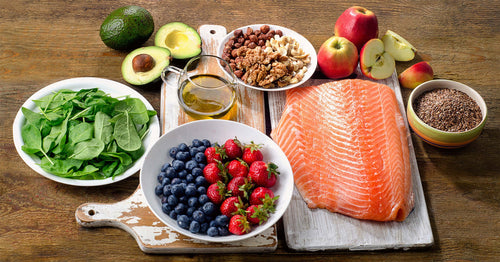
The human heart, a miracle of biological engineering, operates with remarkable precision and endurance. Central to our heart’s function are multiple biochemical processes that rely on specific nutrients. Among these, magnesium and potassium stand as pillars of cardiac health.
The Role of Magnesium in Maintaining a Healthy Heart Rhythm
Magnesium, an elemental mineral, is pivotal in supporting the electrolytes necessary for a steady heartbeat. It acts as a gatekeeper, modulating the flow of calcium, sodium, and other ions across cellular membranes—a process essential for electrical conduction and muscle contraction within the heart. A deficiency in magnesium disrupts this delicate balance, potentially leading to unhealthy changes in the rhythm of heartbeats.
Potassium for Cell Regulation and Heart Health
Potassium serves as an indispensable mineral within cells. It is important for promoting a healthy cardiac rhythm and it also plays a role in protein synthesis, carbohydrate metabolism, and maintaining healthy nerve and muscle functions—all critical components of cardiovascular vitality.
Exploring Magnesium and Potassium for Heart Health
The efficacy of potassium's role within cardiac cells is contingent upon adequate levels of magnesium. Magnesium facilitates the transport of potassium into cardiomyocytes, the cells responsible for contraction of the heart, thereby ensuring potassium is available where most needed. This symbiotic relationship underscores the necessity for a balanced intake of both minerals to safeguard against cardiac function concerns.
Ageing and the Absorption of Magnesium and Potassium
As we age, physiological changes may impair the absorption of vital nutrients including magnesium and potassium. Factors such as diminished digestive efficiency and alterations in kidney function can lead to suboptimal levels of these ions, making it important that we increase our intake.
Upping our Intake for Better Heart Health
To increase our intake of magnesium and potassium, we can incorporate more of the following foods into our diet: leafy greens, nuts, whole grains, bananas, and avocados are great sources. Additionally, certain lifestyle modifications like reducing alcohol consumption and avoiding excessive processed foods can enhance mineral absorption.
Ensuring we get enough magnesium and potassium is foundational to heart health and important for all ages and stages of life. If leafy greens, legumes, nuts, whole grains, bananas, avocados, and other fresh fruits are not part of your daily diet, make dietary changes or incorporate a supplement into your daily routine to be certain these beneficial minerals are at the levels that best support heart health.






